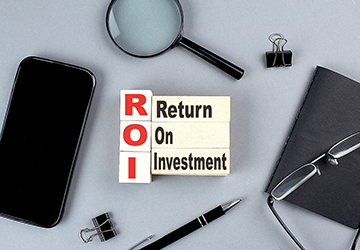How to Evaluate Investment Properties for Profitability
Are you planning to buy up some property? It's good you are about to take the plunge, but you must weigh the possibilities of profitability before you do. Addressing aspects like rental income, expenses, neighbourhood trends, and property conditions will assist you in coming up with reliable decisions that can help maximize returns. In this article, we'll show you four main ways to assess the property and determine if it will bring a profit or be a financial disaster.

Expert Tips for Evaluating Investment Opportunities
When you're eyeing investment properties, you want to ensure they'll bring in the bucks. Here are four straightforward tips to help you figure out if a property is worth your cash:
Calculate the Potential Income
First and foremost, research the rental prices of properties located within the area. You can see pieces available online, talk to local real estate agents, or even view ads in the newspaper. Once you have a clear picture of the other homes in your neighbourhood that are being rented similar to yours, you can estimate how much rent you can get for your investment property.
Next, looking at the vacancy rate is wise; this is when your property will remain unoccupied during the time gap between occupants. Vacancies do not disappear in a scorching property market. Therefore, you must prepare for this factor to be incorporated into your calculations. It is one of the general rules of thumb to facilitate an allowance of about 5%-10% of the vacancy rate.
Consider Expenses
Not only do you have your expenses, but you also need to anticipate the various costs of being a landlord. Such as property taxes, insurance, maintenance and repairs costs, fees (in case you're hiring a management company), and utilities that you'll be responsible for.
On the other hand, property taxes and insurance usually are pretty simple since they are sent out once or twice yearly. Maintenance expenditures can significantly fluctuate depending on the property's age and condition. Therefore, you should save a planned portion of the rental income each month for the repair.
In addition, it's good to plan for the contingencies, such as water leakage and defective appliances. Thousands of landlords save a small part of their monthly rental income to answer different emergencies.
Do the Math on Cash Flow
Once you are comfortable with the anticipated income and expenditures for the property, it is time to calculate whether there will be profit. First, expenses are subtracted from rental income to calculate net operating income (NOI).
The NOI represents the difference between how much money you have left each month after paying all your expenses; this is the cash you have probably used to pay your mortgage (if you have one), but it can also be used to make a down payment on a home, set aside savings for repairs or investments, or be used as profits.
Check the Return on Investment (ROI)
Now, it's time to do a final assessment of the entire return on your investment. Here, you need to calculate the annual NOI and divide it by the total investment in your property. As a result, you will have the ROI expressed in a percentage.
If your annual NOI happens to be $10,000 and you're working with a $100,000 investment, your ROI would be 10%. Thus, the investment yields a ten per cent return annually.

Overall, high ROI is usually a good thing as it implies that you are getting a lot for the money you have spent. ROI is a significant factor in real estate valuation, but other factors must also be considered when analyzing a property.
Assess the Neighborhood
The positioning of a property can shape its possible earnings. Make sure you take at least a few minutes to research the neighbourhood where the property is situated. Seek evidence of growth and development, for instance, by looking for increased businesses, infrastructure improvement, and job vacancies. Dwellings in neighbourhoods with high demand for rentals that are on the rise are more likely to be worth increased value and have reliable tenants.
Also, note that the neighbourhoods are experiencing a slipdown in values or heightened crime rates. These areas may be more challenging to let out and need more regular upkeep and repairs so that you will earn less money.
Evaluate the Property Condition
Before investing money, inspecting the property thoroughly to understand its particularities is necessary. Check for any deteriorated structures, seeping, or pests that could drain your pocket. It is advisable to get the house inspected by an expert and receive a report of the issues found in the house before making the final decision.
Moreover, the age and state of the main apparatuses, including the HVAC system, pipes, and electrical wiring, should be considered. Improperly maintained or outdated buildings may have malfunctions or regular repairs, so allocate a part of the budget for these costs.
Additionally, factor in the general charm of the land holding. A well-managed property gives tenants a reason to think that they are living in a place with a high standard of living, and thus, the demand for it will be high, hence higher rental prices and improved profitability.
Conclusion
Accurate investigation of investment properties as a source of income requires a detailed analysis of several elements. Many factors must be considered, including calculating possible rental income and expenses, assessing the neighbourhood and property condition, etc.
Every step of this process is crucial for making sound investment decisions. With these steps, you can bravely face the real estate market and spot the chances to be highly profitable for you and your financial interests. Happy investing!